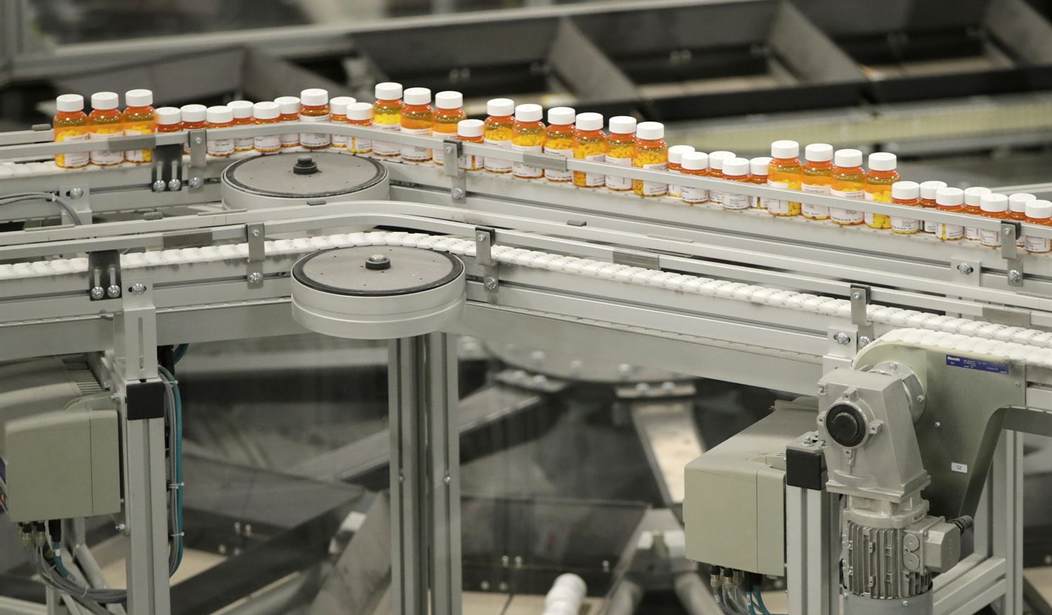On April 22, 2021, Representative Frank Pallone Jr. (D-NJ) re-introduced the Elijah E. Cummings Lower Drug Costs Now Act (LDCNA). Shortly after re-introducing the bill to Congress, Pallone stated, “this legislation will dramatically rein in costs by finally empowering the federal government to negotiate fair prescription drug prices with Big Pharma.”
While Representative Pallone’s bill is well-intentioned, LDCNA would establish rigid price controls for medications that would ultimately deny present and future patients access to life-improving and life-saving drugs. Perhaps most egregious is the fact lawmakers are advocating for price controls on pharmaceutical drugs despite clear warnings from the non-partisan Congressional Budget Office about the negative effects for patients.
If LDCNA becomes law, it will empower Medicare to negotiate with drug companies, force pharmaceutical companies to sell their drugs to private insurers at the rate negotiated by Medicare, limit the maximum price to the average in other countries. The bill would also create a $2,000 out-of-pocket limit on prescription drugs used by Medicare beneficiaries.
LDCNA attempts to resolve one of the most significant problems in U.S. healthcare – the high price of prescription drugs. Studies have shown that Americans face some of the highest drug prices in the world. The RAND Corporation estimated in January 2021 that U.S. patients pay 2.56 times more for drugs than 32 other nations, a figure that rises to 3.44 times more for brand-name drugs.
While imposing price controls may seem an easy way to resolve the problem of high prices for prescription drugs, doing so will only cause a raft of new problems for patients in need of medication.
The pharmaceutical industry faces a fundamental problem that would make price controls particularly dangerous – the high cost of research and the high failure rate of drug candidates.
Recommended
The Massachusetts Institute for Technology School of Management recently reported that “nearly 14% of all drugs in clinical trials win approval from the FDA,” with the cost of developing a new drug standing at $985 million, according to the American Medical Association. It also takes an estimated 12 years for a drug to make it from a pharmaceutical company research department to FDA approval.
Developing new pharmaceutical drugs, therefore, is not only time-consuming, but it is very capital intensive, requiring significant revenue to be derived from the sale of their products. Faced with reduced revenue caused by price controls, pharmaceutical companies will be physically prevented from developing new, life-saving products and bringing them to market.
Arguably the most significant problem associated with price controls for medication is the significant reduction in research and development (R&D) investments pharmaceutical companies could make to developing new products for American patients.
In 2019, the CBO estimated that “the pharmaceutical industry spent $83 billion dollars on R&D. Adjusted for inflation, that amount is about 10 times what the industry spent per year in the 1980s.” Over the last decade, this significant investment resulted in “the number of new drugs approved for sale increased by 60 percent compared with the previous decade.”
In a letter to Rep. Pallone, the CBO warned pharmaceutical companies would face reduced revenues by imposing price controls that would inevitably cause “lower spending on research and development and thus reduce the introduction of new drugs.” Early CBO estimates suggest declines “in revenues of $0.5 trillion to $1 trillion would lead to a reduction of approximately 8 to 15 new drugs coming to market over the next 10 years.”
In 2005, the National Bureau of Economic Research (NBER) issued a far starker warning. They suggested “cutting prices by 40 to 50 percent in the United States will lead to between 30 and 60 percent fewer R and D projects,” ultimately leading to fewer future medications for patients.
For patients, the warnings from the CBO and NBER could not be more clear: while price controls may lower prices for patients in the short term, the long-term effects will be fewer drugs on the market.
Price controls will not only deny patients access to future drugs, but they could also deny them access to medications currently on the market. The CBO warned Rep. Pallone that “a manufacturer that was dissatisfied with a negotiation could pull a drug out of the U.S. market entirely,” denying patients access to medications they are currently using.
While imposing price controls on prescription medications may be well-intentioned, it should be clear to legislators that a move in that direction will only create a new set of intractable problems for American patients. Rather than being unable to afford medications, patients could be denied access to future drugs as well as those already on the market altogether.
Rather than simply dictating prices to pharmaceutical companies, Congress would be better placed to lower the regulatory burdens and allow generic drugs to reach patients faster and reform pharmacy benefit managers that artificially raise the price patients pay. That way, patients will continue to be able to access current and future drugs without the significant prices.
Edward Longe is a research associate at the American Consumer Institute, a nonprofit educational and research organization. For more information about the Institute, visit www.TheAmericanConsumer.orgor follow us on Twitter @ConsumerPal.

























Join the conversation as a VIP Member